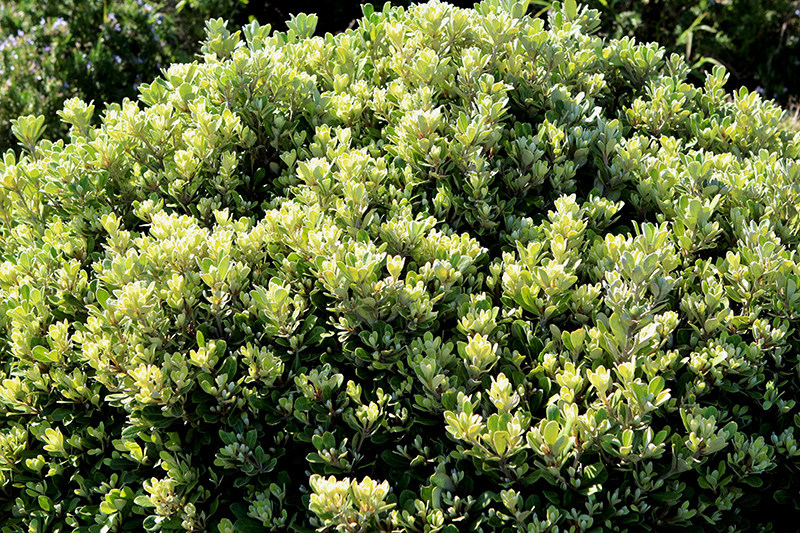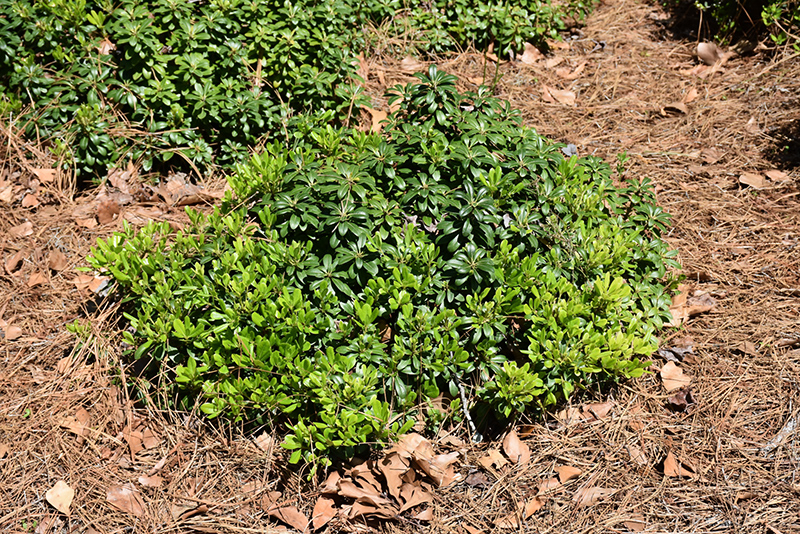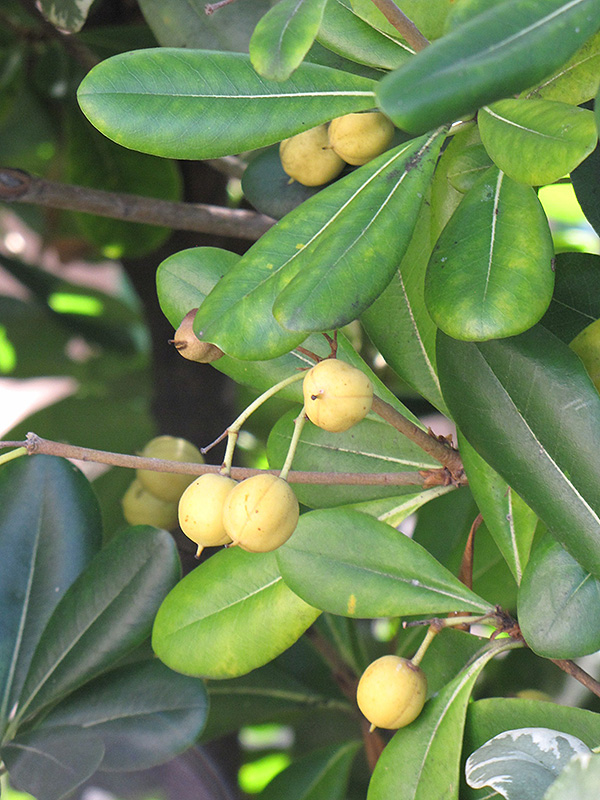Plant Finder
Wheeler's Dwarf Mock Orange
Pittosporum tobira 'Wheeler's Dwarf'
Height: 4 feet
Spread: 4 feet
Sunlight:
![]()
![]()
Hardiness Zone: 8
Other Names: Japanese Pittosporum
Description:
A dwarf variety that is slow growing and stays very compact and round with little pruning; emerging foliage is yellow-green maturing to dark glossy green; perfect for a low hedge, or a geometrical accent in the garden
Ornamental Features
Wheeler's Dwarf Mock Orange has attractive dark green evergreen foliage which emerges chartreuse in spring on a plant with a round habit of growth. The glossy oval leaves are highly ornamental and remain dark green throughout the winter.
Landscape Attributes
Wheeler's Dwarf Mock Orange is a dense multi-stemmed evergreen shrub with a more or less rounded form. It lends an extremely fine and delicate texture to the landscape composition which can make it a great accent feature on this basis alone.
This is a relatively low maintenance shrub, and can be pruned at anytime. It has no significant negative characteristics.
Wheeler's Dwarf Mock Orange is recommended for the following landscape applications;
- Accent
- Mass Planting
- General Garden Use
Planting & Growing
Wheeler's Dwarf Mock Orange will grow to be about 4 feet tall at maturity, with a spread of 4 feet. It has a low canopy. It grows at a slow rate, and under ideal conditions can be expected to live for 40 years or more.
This shrub does best in full sun to partial shade. It does best in average to evenly moist conditions, but will not tolerate standing water. It may require supplemental watering during periods of drought or extended heat. It is not particular as to soil type or pH. It is somewhat tolerant of urban pollution. This is a selected variety of a species not originally from North America.



